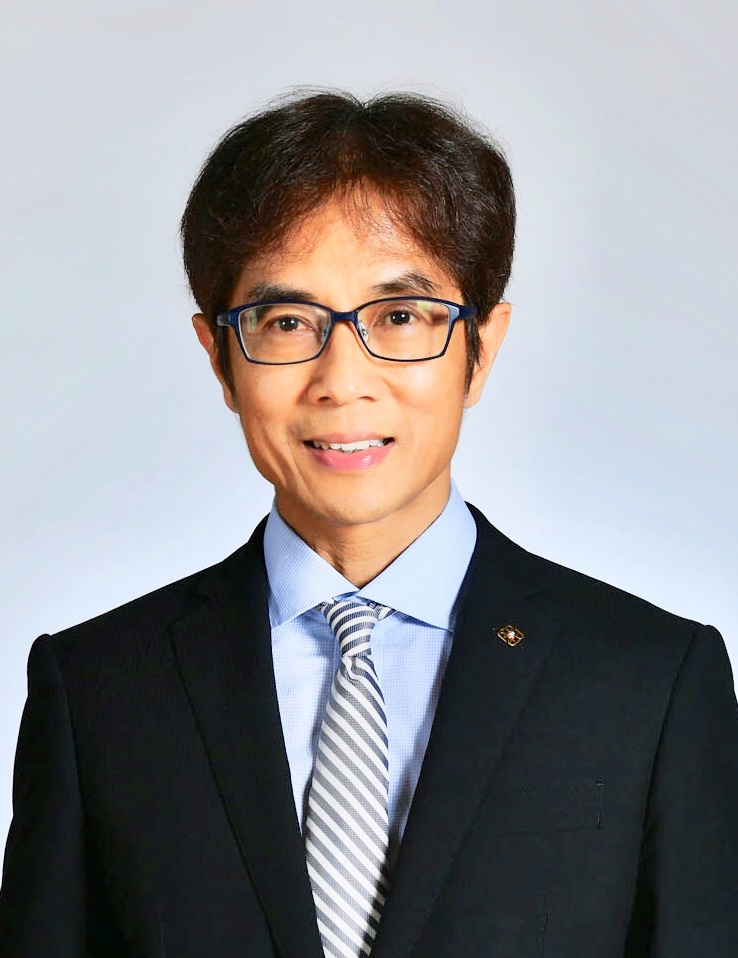
Biography
Prof. Peter P. Yuen is Dean of the College of Professional and Continuing Education (CPCE) of The Hong Kong Polytechnic University (PolyU). He is also Professor of PolyU’s Department of Management and Marketing. He received his Bachelor of Arts degree in Cellular and Molecular Biology and Master in Business Administration degree from the State University of New York at Buffalo, USA, and his Doctor of Philosophy degree in Health Economics from the University of Birmingham, UK.
Prior to his appointment as Dean of CPCE, Prof. Yuen held a number of management positions at PolyU, including Associate Vice-President (Management), Director of the Public Policy Research Institute, and Head of the Department of Management. He was also the founding Director of the Doctor of Business Administration programme in the Faculty of Business.
Prof. Yuen’s research mainly focuses on public policy formulation and evaluation, and health services management. He is the Co-Editor-in-Chief of Public Administration and Policy and an Editorial Committee member of Asia Pacific Journal of Health Management. He was also a consultant for the Hong Kong Special Administrative Region (HKSAR) Government and the Bauhinia Foundation on a number of public policy related projects including the West Kowloon Cultural District, Sustainable Built Environment, Subsidised Homeownership, Managed Care in Hong Kong, and Health Systems Reform.
Prof. Yuen is currently the immediate Past Chairman of the Federation for Self-financing Tertiary Education (Hong Kong). He has served as a member of the HKSAR Government Manpower Development Committee, Health and Medical Development Advisory Committee, and the Committee on Self-financing Post-secondary Education. He is a founding Fellow of the Hong Kong College of Health Services Executives, and an Honorary Fellow of the Australian College of Health Services Management. He once served as Vice-President of the Chinese National Institute of Health Care Management Education, and President of the Hong Kong Public Administration Association.
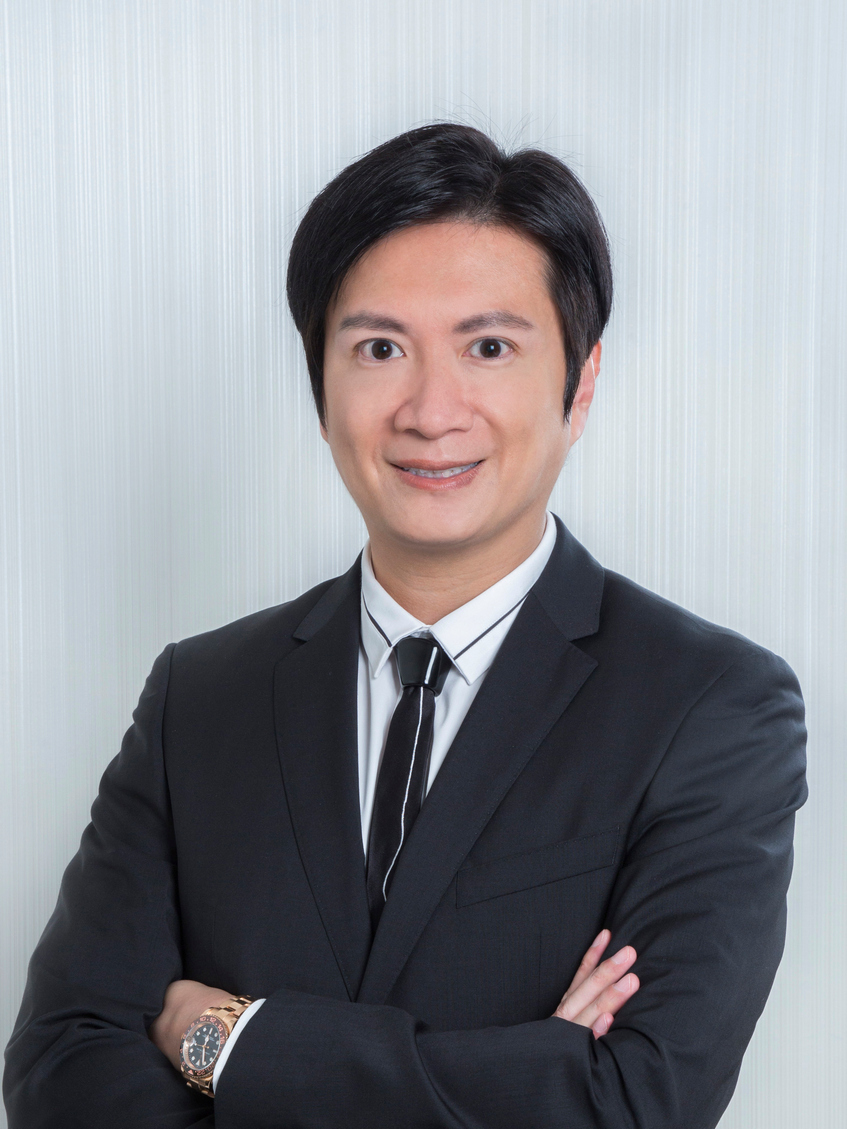
Dr. CHAN, Kai-yue Jason, MH, JP
Biography
Dr. Jason Chan, MH, JP is the Associate Dean (Information and Development) and Head of Information Technology of the College of Professional and Continuing Education (CPCE) of The Hong Kong Polytechnic University (PolyU). He is also the Director of the School of Professional Education and Executive Development (SPEED).
Dr. Chan is an innovation and technology expert and a professional generalist. He is well-qualified with various degrees and credentials. He received his Bachelor of Arts degree in Public and Social Administration with First Class Honours and Master of Science in Computing degree from the City University of Hong Kong, Master of Educational Technology degree from The University of British Columbia, Doctor of Education degree from the University of Bristol, the credential of Stanford Certified Project Manager from Stanford University and Certified Practising Accountant of CPA Australia. With a multidisciplinary academic background and diverse experience, Dr Chan is an accomplished professional generalist in public administration, education, artificial intelligence, big data, social media, social commerce, Fintech, Internet of Things, strategy, resource management, leadership, smart city, research methodology and e-governance.
Dr Chan is actively engaged in public and community service by serving
on various committees and panels of Government and statutory bodies
such as the following:
Member, Property Management Services Authority
Member, Board of Governors, The Prince Philip Dental Hospital
Member, Advisory Committee, Innovation and Technology Venture Fund
Member, Steering Committee, Child Development Fund
Member, Dissemination & Promotion Sub-committee, Quality Education
Fund
Member, Entrepreneurship Committee Advisory Group, Cyberport
Mentor, Hong Kong Science and Technology Park, Cyberport, and Hong
Kong Scholarship for Excellence Scheme, Education Bureau
He was also a Member of Chinese People's Political Consultative
Conference, SongJiang Shanghai (2017-2021), Member of Consumer Council
(2016-2018), Member of Solicitors Disciplinary Tribunal Panel,
Judiciary Hong Kong (2015-2021), Member of Transport Tribunal Panel
(2013-2020) and Member of Advisory Committee (Tertiary Education
Representative), Education Development Fund (2012-2019). In
recognition of Dr Jason Chan’s services and contribution to the
community and the Government over the years, he was appointed as
Justices of the Peace (JP) and awarded the Medal of Honour (MH) by the
HKSAR government in 2017 and 2021 respectively.
As for voluntary and professional affiliations, Dr Chan is currently the President of Hong Kong Digital Currency Academy and the Vice-President (Innovation and Technology) of UNESCO Hong Kong Association. He was the Chairman of Hong Kong Mensa: The High IQ Society (2012-2015 and 2018-2020), President (Education) of Young Professionals Alliance (2014-2017) and Vice President of Hong Kong Public Administration Association (2014-2020). Dr Chan has regularly organised and participated in well-regarded community service activities as a true partner of our community and nation.
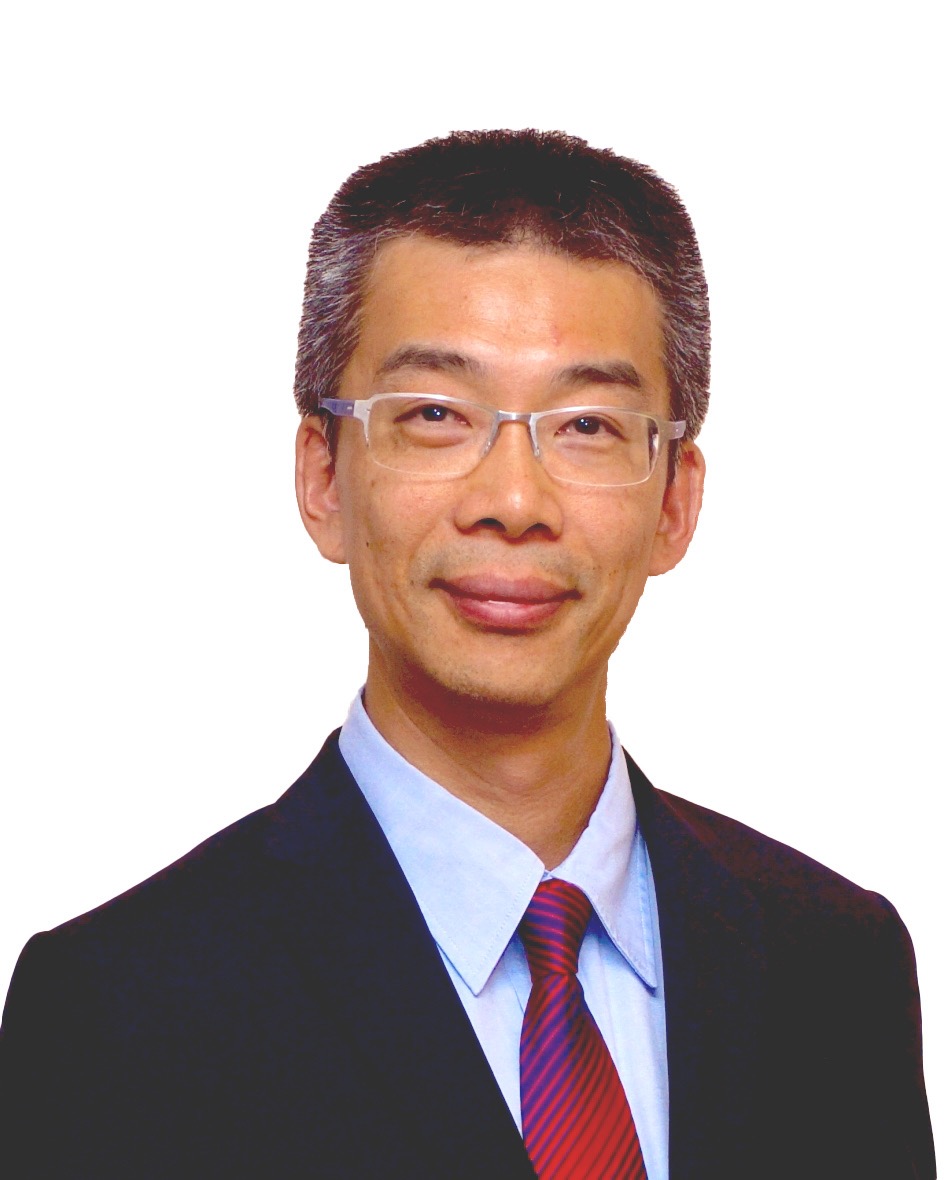
Biography
As Deputy Commissioner (Data Governance), Mr. Donald Mak has been actively involved in promoting Government’s agenda for innovation, technology adoption and public services improvement. He also played a key role in the implementation of a number of digital government infrastructures (including the government cloud infrastructure, big data analytics platform, shared blockchain platform, consented data exchange gateway, iAM Smart and Digital Corporate Identity Platform) and the formulation and implementation of open data policy as well as other data governance policies and measures.
Mr. Mak joined the Government in 1989. Since then he has assumed various important duties including formulation and implementation of facilitation strategies and initiatives for information and communications technology (ICT) industry development, data centre development, digital inclusion, ICT co-operation with the Mainland and overseas economies as well as the implementation and management of various government ICT systems and services.

Biography
Mr. Ho is a seasoned entrepreneur and business leader with extensive experience in automation and technology-driven solutions. As the CEO of PMEC (Primech Holdings Ltd.), he has led the company’s growth in the cleaning and facility management industry, driving innovation through robotics and AI. He also founded Primech AI, which developed Hytron, Asia’s first toilet-cleaning robot, now deployed in airports, hospitals, and commercial properties. With a background in technology and business, he is passionate about automation, efficiency, and expanding smart cleaning solutions globally.
Transforming a Traditional Manpower-Driven Business into a Robotics Company
Abstract
Seven years ago, I acquired a group of traditional cleaning companies — Primech, A&P, and Maint-Kleen — because I believed that people-powered industries like cleaning would remain stable and profitable, even as the world accelerated into tech. At the time, I saw these businesses as grounded, reliable, and resistant to disruption.
But everything changed when I started seeing not just consumer robot vacuums, but a rising wave of industrial cleaning robots entering the market. It was clear: with stronger computing power, improved sensors, robotic arms, and autonomous mobility systems, the technology was reaching a tipping point.
That realization led me to found Primech AI, with one bold goal: to build Hytron — Asia’s first autonomous toilet-cleaning robot. In this keynote, I’ll share the full journey of transforming a traditional manpower-driven business into a robotics company. From hardware design challenges to developing AI that can navigate tight restroom environments, and from convincing stakeholders to deploying Hytron across airports, hospitals, malls, and government buildings — it has been a mission filled with technical, operational, and cultural breakthroughs.
This talk is not just about a robot — it’s about recognizing industry blind spots, leveraging timing, and daring to innovate in spaces most people ignore. I’ll also share what’s next: how robotics and AI will reshape frontline service delivery in hospitality, tourism, and retail — not by replacing people, but by elevating standards, safety, and consistency.
Whether you're an academic, policymaker, or industry leader, I hope to inspire new thinking on how we bring robotics into the real world — starting from the ground up.
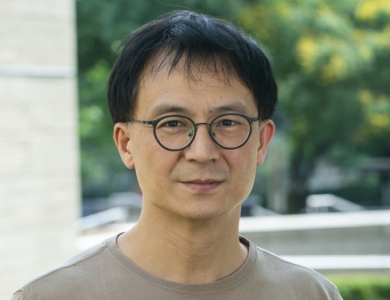
Biography
Dong-Yan Huang (M’96-SM’05) received her bachelor and master degrees from Xi’an Jiaotong University, Xi’an, China, in 1985 and 1988, respectively, and the PhD degree in Système Physique et Métrologie-Communication & Electronique from the Conservatoire National des Arts et Métiers Paris (CNAM), France, in 1996. She is now Chief of Scientist, Shenzhen Xinyang AI Co. Ltd; Steering Committee Member of Tsinghua University IID Master Program; Visiting Researcher at Shenzhen Institute of Advanced Technology, Chinese Academy of Sciences - Ambient Intelligence and Multimodal Systems Lab. From Feb. 2019 – Dec. 2024, She was a Principal Scientist at UBTECH Robotics Corp. From Dec. 1997 to Nov. 2002, she was a Senior Research Engineer at the Institute of Microelectronics, Singapore. Before that, she was a postdoctoral researcher at the UFR de Mathématiqueset Informatique, Université Paris Descartes, France. From Dec. 2002 to Feb. 2019, she was a Senior Scientist at the Institute for Infocomm Research, Singapore. Her research focuses on machine learning, pattern recognition, affective computing, automatic speech recognition, text-to-speech synthesis, voice conversion, computer vision, dialogue system, talking head, human-machine interaction, robotics and embodiment intelligence. She has authored more than 100 publications in peer-reviewed journals, and conference proceedings. She was solicited and co-chaired for ASMMC from 2015 to 2021. She has been serving as the program committee for several international conferences in the areas of signal processing, speech processing, multimedia, human-computer interaction, affective computing and intelligent interaction. She was the chair of the IEEE Singapore Sensor Committee Sub-Committee (2016-2018), the chair of the WIE (Women in Engineering) group (2006-2008). She led a team to implement online and offline speech technology on Cruzr, Walker robots and a series of educational products. Her team’s works on digital emotion won the awards of A*STAR’s 30 Most Impactful Innovations & Inventions over Three Decades (2021), and P&G Connect + Develop Open Innovation Solutions Award on Digital Insights 2020, the first prize in the 2011 INTERSPEECH Speaker State Challenge Sleep Competition and the first prize in the EmotioNet Challenge.
The Robotic Applications in the Great Bay Area’s Hospitality and Tourism Industries
Abstract
In this keynote speech, I talk about “The Robotic Applications in the Great Bay Area’s Hospitality and Tourism Industries”. I start presenting the methodology of the research on the key results regarding the activities that customers perceive as appropriate for robotisation, their preferences to be served by robots, and their willingness-to-pay for robot-delivered services conducted by Ball State University. Recently, the rapid advancements in robotics and artificial intelligence are transforming industries worldwide, robots have been widely adopted in the hospitality and tourism industry. Efficient robots can help hoteliers and tourism suppliers with their repetitive or manual labor. Due to the coronavirus disease (COVID-19) pandemic, there is an increasing number of publications on robotic applications in hospitality and tourism. On one hand, I present how the integration of robotics and artificial intelligence in the Great Bay Area’s hospitality and tourism industry can lead to improved operational efficiency, cost reductions, enhanced safety measures, and better customer service. Hotel owners, as well as the related staff, offer modern conditions and services, based on novel technologies, such as: intelligent room technology, artificial intelligence and robotic devices. “Robots can help with everyday tasks such as guests greeting, housekeeping, room service, food and luggage delivery”; On the other hand, I present how tourism benefits from modernization in order to improve the services offered. Thus, language translation, audio tours and online shopping create much more interesting and engaging travel conditions, as well as the robots are used in 4S shops for car-rent, guide guests in a gallery or museum, etc. Finally, With the disruptive evolution of artificial intelligence (AI), the roles of robotics in hospitality and tourism are shifting rapidly from automatic to emotional works. I discuss prospects for the future research and practice agenda of service robots in the tourism and hospitality industry.
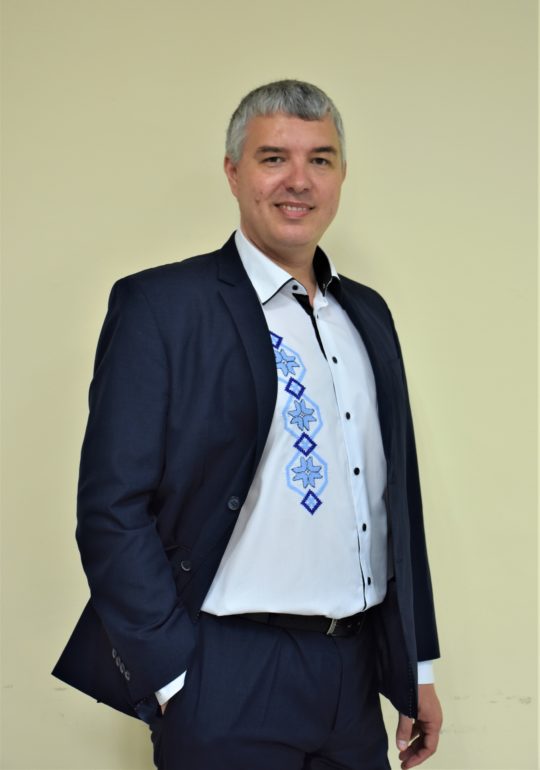
Biography
Prof. Stanislav Ivanov (‘Stan’) is a Professor in Tourism Economics at Varna University of Management and Director of Zangador Research Institute. He is the founder and the (co-)Editor-in-chief of two academic journals: the European Journal of Tourism Research (indexed in Scopus and Web of Science) and ROBONOMICS: The Journal of the Automated Economy.
Additionally, he serves on the editorial and review boards of over 30 other journals. He authored over 200 publications (books, book chapters, articles, conference reports, book reviews, and industry reports) in the field of robonomics, robotics, artificial intelligence and service automation, hotel marketing, hotel chains, pricing and revenue management, destination marketing and management, tourism’s impact on economic growth, political issues in tourism.
The Economics of Service Robots in Hospitality Companies
Abstract
Hospitality companies are increasingly adopting service robots to enhance competitiveness, reduce costs, and improve service quality. With growing autonomy and social interaction capabilities, robots can substitute human staff in some functions and augment their capabilities in others. However, sustained use of robots depends on managers’ understanding of their economic benefits and costs. Without this, investment decisions may be misguided and inefficient. Although existing studies highlight interactions between robots and employees, and some financial pros and cons, detailed knowledge of the economic implications of service robots in hospitality companies remains limited.
This presentation outlines a conceptual framework that explores how robots affect tasks, processes, jobs, and performance metrics of hospitality companies. It looks at the hospitality operations as a set of processes—front-of-house (e.g. check-in, dining) and back-of-house (e.g. housekeeping, maintenance), consisting of various tasks. Robots operate at the task level. By automating individual tasks, they can automate whole processes. The likelihood of task automation depends on it nature, frequency, standardisation, and complexity. Robots may substitute, augment, or transform human roles in task delivery, eliminate or create entirely new tasks.
Robot implementation requires alignment with employees’ skills and attitudes, as well as integration with existing legacy technologies. Robots can compete with, depend on, or work independently from legacy systems. Their introduction may require integration, replacement, acquisition, or upgrade of other technologies—each with cost implications. Companies may pursue a cost-saving, revenue generation or mixed strategy in the implementation of service robots.
The economics of service robots depends of various internal and external factors such as customer willingness-to-pay for robotic services, robot costs, competitor actions, and legislation, among others.
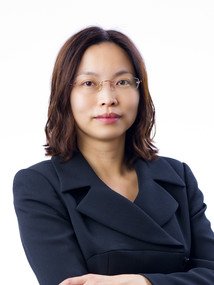
Biography
Dr. Daisy Lee is a veteran of marketing. She has extensive commercial experience across digital marketing, consumer marketing, shopper marketing, business marketing, technical marketing and marketing research gained from multinational giants she worked with. Prior to academia, she worked as Regional Director at Philips Asia Pacific marketing team, overseeing 15 APAC countries.
Aspiring to nurture the next generation, Dr Lee started her teaching career at the City University of Hong Kong. She taught undergraduate marketing programme at CityU for 5 years before joining this institution. Her research interest focuses on digital marketing and social marketing.
Experimental Design in Robotic Research for Business, Marketing, and Hospitality Scholars
Abstract
The increasing integration of robots into service industries creates a transformative landscape for consumer experiences and business operations. While advancements in robotics technology are rapid, understanding the nuances of human-robot interaction from a customer perspective is crucial for successful implementation. This talk offers a practical introduction to experimental design for researchers in business, marketing, hospitality, and tourism who are interested in exploring the impact of robotics on consumer behavior and service encounters. In this seminar, the focus will be on rigorously designing and conducting experiments to investigate key aspects of the consumer experience with robots. These aspects include how consumers perceive and interact with robots, along with how these interactions influence their behavior, satisfaction, and overall experience. The speaker will outline how to develop experimental protocols that address the research questions, manipulate stimulus variables such as robot appearance and social cues, and measure outcomes like trust, satisfaction, and purchase intention. Participants will learn about different experimental designs, including between-subjects and within-subjects designs, and how to select the appropriate design based on their research questions. Additionally, the talk will highlight the importance of controlling extraneous variables and ensuring the reliability and validity of the experimental measures. The speaker will discuss various methods for analyzing the data collected from experiments, including statistical techniques and software tools. By the end of the talk, participants will have a comprehensive understanding of the experimental design process and will be equipped with the foundational knowledge to design impactful research that contributes to the growing body of literature on human-robot interaction in commercial settings. This talk aims to bridge the gap between technical advancements in robotics and the practical application of these advancements in service industries, ultimately enhancing the consumer experience and improving business operations.
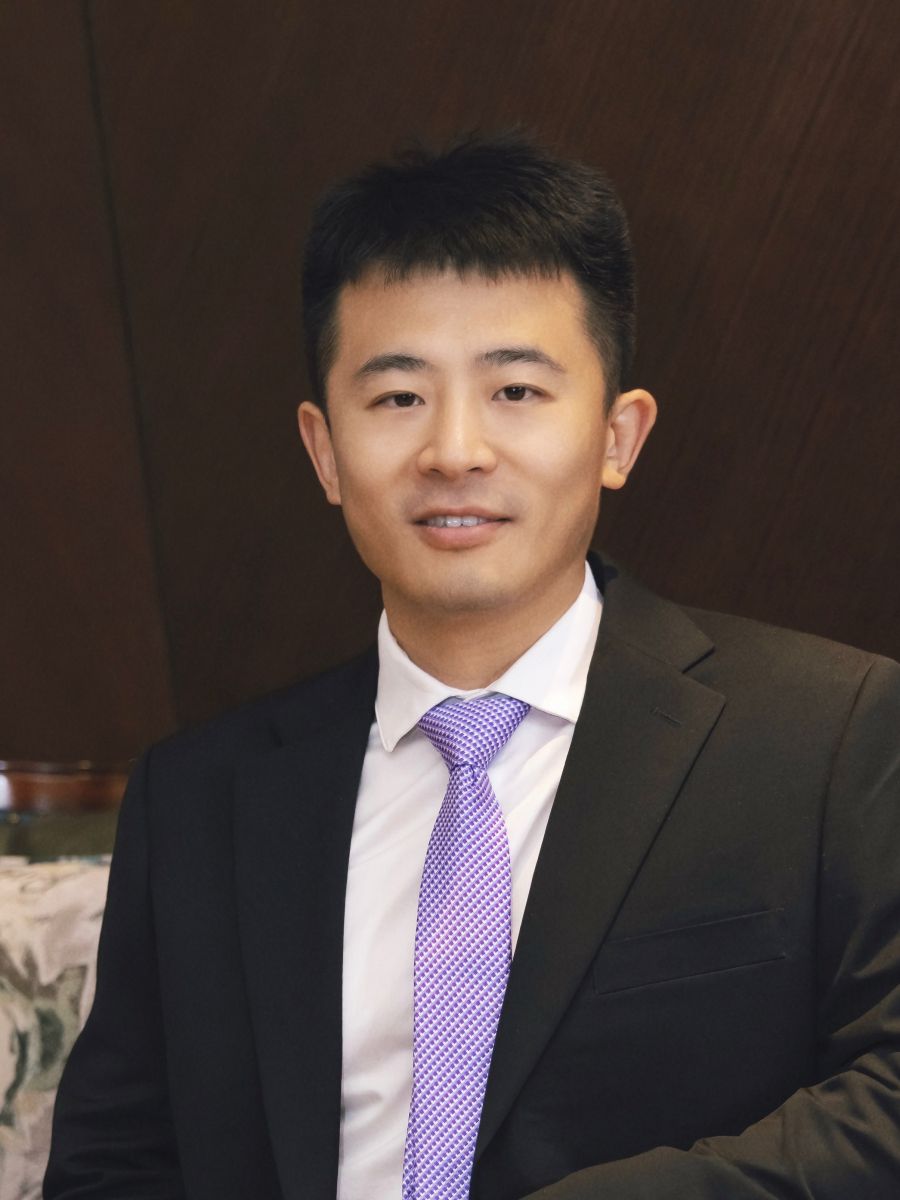
Biography
Boyu Lin is an assistant professor in the Faculty of International Tourism and Management at the City University of Macau. He has received a Master from the University of Leicester in England and a PhD from Arizona State University in the USA. He previously worked at Beijing Union University for more than 4 years. He has an interest in intelligent technology for service innovation and social media marketing.
Dr. Lin has over 20 publications and is involved in over 20 international projects. He is an editorial board member of some tourism journals and a reviewer for top SSCI journals. He has been awarded twice for best conference paper in international conferences. His vision is that intelligent technologies can be applied practically to enhance the quality of life in the community and visitors' experience, making our lives easier, faster, and better.
Ethical Dynamics of Service Robot Adoption in Tourism and Hospitality
Abstract
The outbreak of COVID-19 has accelerated the penetration of service robots in the service industry, but ethics studies about service robots have been slow to engage in the literature. The ethics studies aim to improve the well-being of consumers by using service robots and limit possible ethical concerns caused by the advancement of AI and robotics. This study employs mixed methods to investigate the impacts of consumer perceived ethical issues regarding service robots in tourism and hospitality. Ethical theories can be used to understand consumers’ ethical judgments toward the ethics of service robots. The qualitative stage reveals ethical issues under two critical dimensions: interaction-based and robot feature-based. These findings establish a second-order structural model based on the Unified Theory of Acceptance and Use of Technology and the Initial Trust Model. The results demonstrate that factors, except effort expectancy and interaction-based ethical issues, influence adoption. Initial trust mediates the impacts between ethical issues and adoption intention. Innovativeness moderates the relationship between initial trust and adoption intention, whereas age has no moderating effect. This study highlights the importance of the ethics of service robots, contributing to business models for human-robot cooperation.

Biography
Dr. Luk was appointed as the Head of Digital Transformation & Insights at HK Express Airways, a Cathay Pacific company. Dr. Luk is an Academic Practitioner & senior leader in Digital Strategy, Digital Technology, Digital Marketing & Consumer Neuroscience with interests in SEA countries.
Dr Luk was honored with CIO100 ASEAN Award 2003 - Top 4 and World CIO200 Legend Award 2003 in recognition of his vision and leadership in driving the company's digital transformation. Recently, he has been bestowed as the Chief Digital Officer of the Year 2025 by Tech Fest Hong Kong.
Advancing Aviation through AI-Driven Robotics
Abstract
As the aviation industry evolves, the integration of robotics powered by Artificial Intelligence (AI) is unlocking unprecedented opportunities for airlines and aircraft operations. This keynote will delve into how AI-enhanced robotics is transforming key areas such as autonomous aircraft inspections, robotic maintenance systems, cargo handling, and in-flight service automation. With AI enabling real-time data processing, adaptive learning, and predictive capabilities, robotics is becoming more intelligent, agile, and reliable—paving the way for safer, faster, and more cost-effective aviation processes. From robotic arms performing precision repairs to AI-guided drones conducting exterior inspections, these smart systems are redefining operational excellence. This session will examine the current landscape, showcase real-world implementations, and explore the potential for robotics to work alongside human teams within airlines. Join us to discover how the synergy between robotics and AI is not just supporting the future of aviation—it is actively building it.
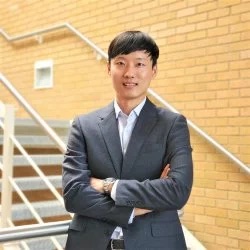
Biography
Dr. Hakseung Shin currently holds the position of assistant professor in the School of Tourism at Hanyang University. Prior to joining this program, he served as an assistant professor (lecturer) in the hospitality and tourism program at the University of Surrey from 2020 to 2021. He obtained his Bachelor's and Master's degrees in tourism management from Hanyang University in 2012 and 2015 respectively. In 2020, he completed his doctoral degree in business administration at the Virginia Polytechnic Institute and State University.
His research has been published in esteemed tourism SSCI journals including Tourism Management, Annals of Tourism Research, and Journal of Travel Research. He holds the position of editorial board member at the Journal of Travel Research. Prof. Shin has been selected as one of the top 2% of researchers globally based on research performance data from Elsevier for 2023.
The AI-Driven Transformation of Tourism: Rethinking Industry, Workers, Travelers, and Society
Abstract
In the tourism industry, AI is not simply being used as a support tool; it is actively reshaping the entire industry ecosystem. From intelligent recommendation systems and dynamic pricing algorithms to generative AI content, the very logic of value creation and service delivery is evolving. At the same time, the nature of tourism labor is being redefined. Frontline employees are increasingly required to integrate tech-intelligence, manage hybrid human-AI workflows, and navigate shifting customer expectations shaped by AI-mediated experiences. On the consumer side, tourists are experiencing travel in fundamentally new ways. AI curates hyper-personalized itineraries, augments real-time decision-making, and even co-creates narratives and memories through tools like virtual influencers and AI-generated travel content. These changes are altering not only how tourists travel but also how they perceive authenticity, agency, and meaning in their experiences. Beyond the industry and individual levels, AI is generating ripple effects on a macro scale. These changes signal the emergence of a Tourism Renaissance, wherein tourism is redefined as a core pillar of personal fulfillment, social cohesion, and cultural participation in an increasingly post-work society. No longer viewed as peripheral leisure, tourism is becoming central to how individuals seek meaning, express identity, and engage with their communities in the context of automation and a restructured labor economy.
This keynote synthesizes insights from a series of empirical and theoretical studies conducted by the presenter. The discussion will be organized across four interrelated dimensions: (1) the transformation of the tourism industry ecosystem, (2) evolving roles, skills, and well-being of tourism employees, (3) behavioral and experiential changes among tourists, and (4) broader socio-economic transformation. Through this multi-layered perspective, the presentation aims to provoke critical dialogue on how AI is not merely enhancing tourism, but actively reconstructing its future.
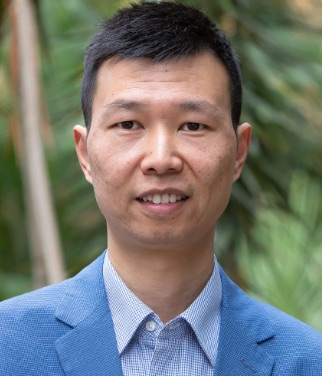
Biography
Dr Song is an established scholar in hospitality and tourism. He obtained his PhD from Griffith University, Australia, and now works as a reader in marketing at the Essex Business School, University of Essex, UK. Dr Song’s research is mainly related to hospitality marketing, consumer behaviour and destination management, and he has published more than 40 peer-reviewed journal articles.
Recently, he has been funded by British academy and various universities to investigate service robots in the hospitality sector, and the research outcomes of service robots are published in top-tier journals, such as Tourism Management, International Journal of Hospitality Management, International Journal of Contemporary Hospitality Management, Service Industries Research, and so on.
Dr Song has successfully completed a number of externally funded projects and is well connected to professional networks in hospitality marketing in Europe, USA, Oceania, and China. He regularly disseminates his research at academic conferences, universities and companies. Before entering academia, he had worked three years in the tourism sector in Mainland China. He currently serves on the Editorial Board of Journal of Vacation Marketing.
My Journey and Personal Reflection of Researching Service Robots in Hospitality and Tourism
Abstract
The global academic world increasingly prioritizes publications in top-tier journals, resulting in soaring submission rates and placing immense pressure on researchers, particularly early-career researchers. Building on more than ten years of publication experience, this keynote speech, to be delivered by Dr Hanqun Song from the University of Essex, UK, aims to add fresh perspectives that help researchers and students to boost their research.
The talk will contain two parts, and in the first part, Dr Song will introduce key principles on developing and publishing quality papers in hospitality and tourism disciplines, such as the requirements in theoretical and practical contributions, research design, and presentations.
Following a sound understanding of quality research principles, in the second part of the talk, Dr Song will focus on research of service robots in the hospitality sector, a theme that has increasingly drawn researchers’ attention. The talk will cover Dr Song’s journey and personal reflection of researching service robots. Several important studies will be introduced as representative studies on service robots, such as ‘Building restaurant customers’ technology readiness through robot-assisted experiences at multiple product levels’, ‘Robotic employees vs. human employees: Customers’ perceived authenticity at casual dining restaurants’, and ‘Similarity-attraction theory perspective on service employees and service robots’ interactions’, etc. Dr Song will share how studies containing valuable originality were triggered, developed, and presented, and how these quality publication principles were reflected in these studies.

Biography
Mr. Hamson Wai has worked in the field of conventions, exhibitions and event planning for 30 years. He has been responsible for exhibition projects in Hong Kong, Macau, Mainland China and other Asian, European and American countries.
He is currently the Honorary President of ILEA Asia Chapter. He is also a member of the Macau Exhibition & Trade Association and the Federation of Hong Kong Brand . He graduated from the Faculty of Social Sciences of the University of Hong Kong in 1991. He is a member of the Advisory Board of the School of Finance and Business of the School of Professional and Continuing Education of the University of Hong Kong. Mr. Wai is currently the general manager of AT Once Communication Limited, responsible for the overall operation and decision-making of the company.
Robotics-Driven Innovations in the Design and Delivery of Event Experiences
Abstract
In an era where technology reshapes our lives, robots are becoming essential in various fields. This presentation explores their transformative applications, starting with their crucial role in patrolling for enhanced safety and surveillance. During the pandemic, robots adapted to perform vital tasks such as disinfection and temperature monitoring, demonstrating their versatility in crisis situations.
Additionally, the integration of artificial intelligence in security systems allows robots to detect unusual activities—such as smoking or fighting—contributing to safer event environments. In event set up, robots are revolutionizing processes with precise line marking and positioning, significantly increasing accuracy and efficiency.
Furthermore, our event partners are pioneering the development of robots capable of assembling aluminum materials, indicating a promising future for innovative manufacturing. This presentation aims to highlight the dynamic landscape of robotics and its profound impact on modern society, showcasing how these machines are not just tools but vital partners in advancing our capabilities.
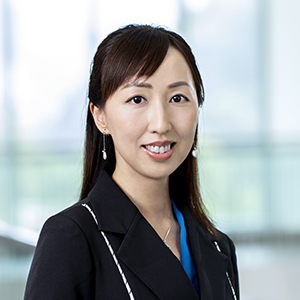
Biography
Professor Wan is an Associate Professor in the School of Hotel and Tourism Management at The Chinese University of Hong Kong (CUHK) Business School and Co-Director of the Centre for Hospitality and Real Estate Research.
She has authored over 120 academic publications, including 46 journal articles in top-tier journals such as Journal of Consumer Research, Annals of Tourism Research, Tourism Management, and Journal of Travel Research. Her research on consumer reactions to service robots during COVID-19, published in Annals of Tourism Research, gained significant attention, attracting 368 media pickups globally, being shared with 15,864 media outlets, and read by 1,253 journalists.
As Associate Editor of Annals of Tourism Research (2023–present), she shapes tourism scholarship. She also serves on the editorial boards of Tourism Management (2024–present), Journal of Travel Research (2025–present), and Journal of Travel and Tourism Marketing (2023–present), and previously on Journal of Hospitality and Tourism Research (2021–2023).
Preparing for the Future of Hospitality and Tourism: Insights on Service Robots
Abstract
As artificial intelligences become increasingly prevalent, the demand for visible, embodied robots in high-contact service industries like hospitality and tourism is rising. In the coming years, we can expect a growing interest in contactless services, including robot receptionists, robot delivery, and other innovative solutions. The market for hospitality service robots is projected to reach approximately US$3,083 million by 2030, with a compound annual growth rate (CAGR) of 25.5% from 2021 to 2030.
While previous literature has indicated that humanoid robots tend to perform better in service interactions due to their relatable appearance, this is not always the case. In this seminar, I will discuss the general applications of both humanoid and non-humanoid service robots in the industry, exploring their roles and potential impact on the hospitality and tourism sectors.
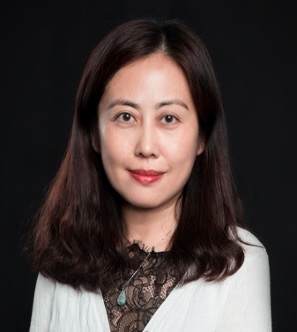
Biography
Dr. Huijun Yang serves as an Assistant Professor at the Faculty of Innovative Hospitality Management, Macao University of Tourism. Her research expertise lies in the innovative application of intelligent technologies, robotic services, cross-cultural behavior analysis, and human resource management within the hospitality and tourism industries. Dr. Yang has made significant scholarly contributions, with publications in top-tier hospitality and tourism journals, including Tourism Management, International Journal of Hospitality Management, International Journal of Contemporary Hospitality Management, Journal of Hospitality Marketing & Management, and Journal of Travel & Tourism Marketing, among others.
Dr. Yang has successfully received substantial research grants from the Macao Government, with over 600,000 MOP from 2020 till now, underscoring her impact in advancing academic inquiry in her field. With more than 20 years of professional experience in the hospitality and tourism sector across Hong Kong, Macau, and Mainland China, she possesses a profound understanding of regional dynamics and industry challenges. Her extensive background enriches her teaching and research, fostering innovation and excellence in hospitality management education.
Robot Appearance: Shaping Human Perception and Interaction
Abstract
With over 20 years of professional and research experience in hospitality and tourism, Dr. Huijun Yang from Macao University of Tourism. In her keynote speech, she demonstrates an in-depth understanding of both academic research and industry-specific challenges, delivering valuable insights that bridge theory and application.
The integration of service robots in hospitality and tourism has significantly enhanced customer experiences. However, their successful adoption largely depends on users' intuitive perceptions, particularly of the robot's appearance and the service context in which it operates. This talk is divided into two parts. The first part examines the classification of robotic appearances and their influence on customer perceptions. The second part focuses on the importance service context, including task complexity and cultural or ethnic considerations, particularly how a robot’s ethnic appearance shapes employees’ expectations and interactions.
Dr. Yang will share her personal journey and insights into researching service robots. She will highlight two studies as exemplary works on robot appearance, including ‘Robotic Service Quality, Authenticity, and Revisit Intention to Restaurants in China: Extending Cognitive Appraisal Theory’ and ‘Similarity-Attraction Theory Perspective on Service Employees and Service Robots’ Interactions’. Dr. Yang will elaborate on how these studies, known for their originality and rigor, were conceptualized, developed, and presented, while also illustrating how principles of quality publication are reflected in her research contributions.
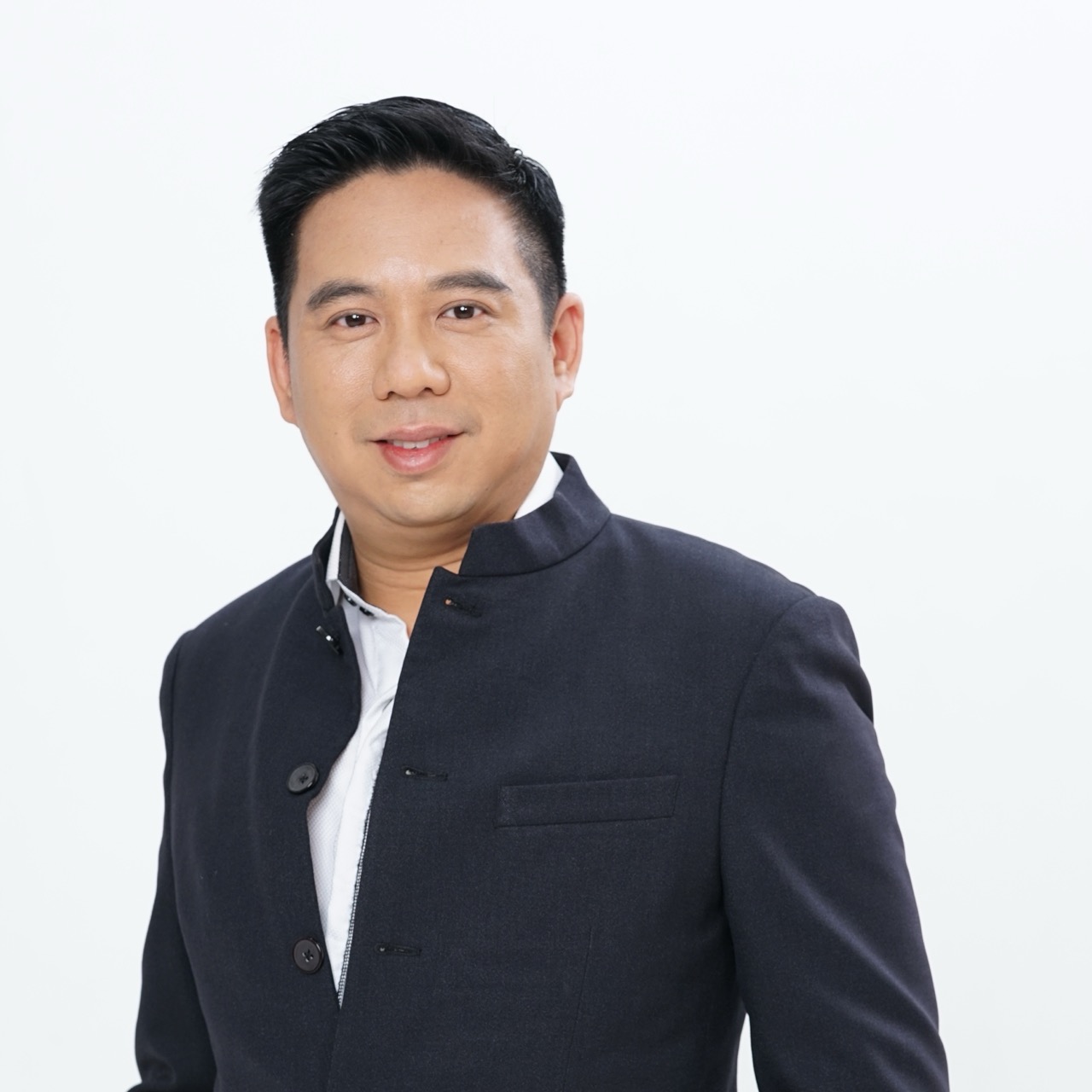
Biography
Gary is a young entrepreneur with a passion for exploring technologies and promoting innovations that enhance the quality of life in our cities, particularly in the Greater Bay Area of China.
As the President of the Smart City Consortium (SCC) since 2019., he has established a vast network connecting consulates, think tanks, universities, research institutions, and international enterprises from 15 regions and countries. This collaboration aims to assist the government in building a Smart City that improves the living standards of residents. He believes that the development of smart cities is supported by three essential elements: technological advancement, policy support, and practical application.
Twelve years ago, Gary founded Techture Limited, a MarTech company that offers integrated online-to-offline (OMO) marketing solutions. The company helps marketers to create engaging consumer experiences that enhance campaign effectiveness.
Policy on Robotics’ Applications
Abstract
A lot of robotics applications have been used recently. However, no long term strategic direction on how to manage those robotics applications. This talk will cover the consideration of the design and implementation of Robotics applications’ policy. What is the identity of Robot? Examples from Tourism and Retail sectors will be used.